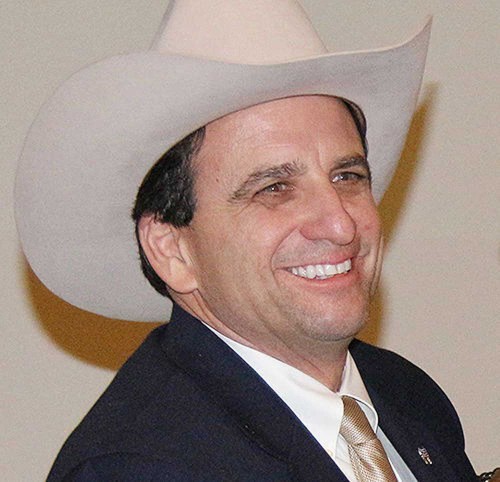Rosa leaves Oregon Cattlemen’s Association; search for replacement underway
Published 4:00 pm Wednesday, June 24, 2020

- Rosa
SALEM — The removal of gray wolves from Oregon’s endangered species list is a defining moment of Jerome Rosa’s six-year tenure as executive director of the Oregon Cattlemen’s Association.
The decision permitted the killing of problem wolves that prey on livestock in Eastern Oregon, which was a key policy objective of the OCA.
Trending
“That was really monumental,” Rosa said.
A framed copy of House Bill 4040, which nullified an environmentalist lawsuit over the wolf delisting in 2016, hangs on his office wall in Salem.
Rosa will soon take down the framed bill and pack it with his other belongings when he leaves the OCA to take over as executive director of the Arizona Cattle Growers Association next month.
As OCA’s leaders begin looking for Rosa’s replacement, they say his work with legislators and regulators exemplifies his value to the organization.
Rosa “elevated the professionalism” of OCA and he “had a big presence at the Capitol that will be missed,” said Todd Nash, the group’s president-elect and a Wallowa County rancher.
Whoever steps into Rosa’s shoes must establish a solid connection with lawmakers, industry leaders and the OCA’s rancher members, Nash said.
Trending
“Communication in all of that is huge,” he said.
It’s not an easy time for the cattle industry, which had faced several tough economic years even before the coronavirus outbreak, he said.
The organization’s next executive director will need an in-depth understanding of the problems facing cattle producers and ability to navigate the legislative landscape while also managing OCA’s finances, staff and regular meetings, said Tom Sharp, a Harney County rancher and the group’s current president.
“We’re looking for a lot of capability,” Sharp said. “That’s a lot I’m asking for and a lot that we’re looking for.”
During Rosa’s time at the organization, he’s been instrumental in hiring and overseeing the OCA’s staff, Sharp said. “The employees just keep getting better and more competent at doing a great job for our membership,” he said.
The OCA will be conducting an open search, inviting applicants to interview for the position rather than simply offering the job to someone in the cattle industry, said Rodger Huffman, the organization’s treasurer and a Union County rancher.
The group will be looking for someone with similar dedication and compassion as Rosa, who was always eager to discuss challenges and concerns with OCA members, Huffman said. “We could text or call Saturday night or Sunday morning, it really didn’t matter,” he said.
The group plans to move as quickly as possible in choosing a replacement, aiming to have a candidate selected before Rosa departs on July 10, said Nathan Jackson, a Douglas County rancher and former OCA president, who will participate in the selection process.
“I’m happy for Jerome but kind of bummed out for the organization,” Jackson said.
Rosa’s replacement should also be skillful in forging relationships with regulators and lawmakers to help advance OCA’s policies, he said. “That’s what makes us effective as an organization, is clearing the path for our guys to get things done.”
Apart from the wolf delisting in Oregon, Rosa said he’s proud of OCA’s national leadership in calling for criminal investigations of price gouging and anti-competitive behavior among major beef packers.
The state organization also led the charge in the National Cattlemen’s Beef Association’s policy against allowing beef to be labeled as a U.S. product if the cattle were imported, Rosa said.
Without the NCBA’s support, such a policy wouldn’t gain traction in Washington, D.C., he said.
The next OCA executive director will have his work cut out for him, as there are “an awful lot of challenges ahead,” Rosa said.
The corporate activity tax in Oregon — which imposes a $250 fee and 0.57% tax on revenues over $1 million — will be problematic for ranchers who exceed that threshold without realizing a profit, he said.
It’s among many serious burdens for the OCA’s members, whose operations are rooted in Oregon but suffer in the state’s stifling business climate, he said. “They can’t just pick up and move to Arizona.”









